
An avid Anglophile and English Literature student from Long Island, Meghan eagerly anticipated her first adventure in Britain. Would Oxford live up to her dreams?
[caption id="DiaryofanOxfordSummer_Feature" align="aligncenter" width="1024"]
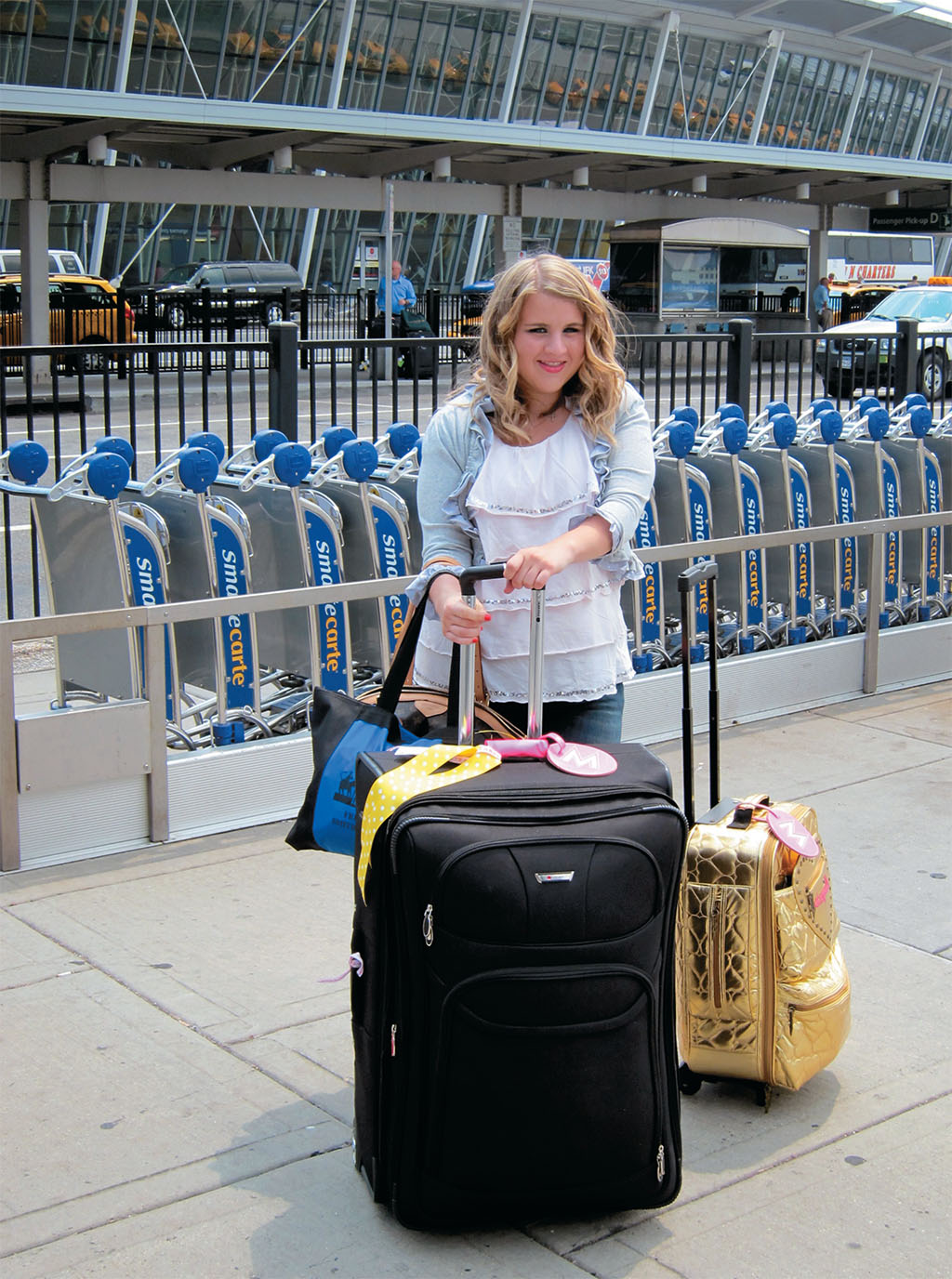
Meghan Harlow
‘IF ADVENTURES WILL NOT BEFALL A YOUNG LADY IN HER OWN VILLAGE, SHE MUST SEEK THEM ABROAD’
“In Breathless Anticipation” – 1
In one week’s time I will be leaving behind friends, family and all that’s familiar to study abroad under Oxford’s “dreaming spires” for six weeks. For this hopeless Anglophile and student of British literature, Britain has graciously served as the canvas for all of my romantic reveries. For years now Britain has ignited my imagination as being nothing short of a Shangri-La; a place where Edward Waverley traipses through the Highlands, where Wordsworth writes of daffodils, where Heathcliff screams across the moors for his Cathy and Fanny Brawne pines for her Keats on Hampstead Heath.
[caption id="DiaryofanOxfordSummer_img1" align="alignright" width="458"]

MEGHAN HARLOW
This whimsical vision of Britain surely explains why the preparation for my Oxford summer has consisted of reading C.S. Lewis and Evelyn Waugh, rather than researching currency exchange rates and voltage converters. Instead, I lie awake wondering whether Oxford will draw me into community as it did those great Inklings or lead me, like Shelley, to indignantly ask, “but must I care about Aristotle?”
These, not international mobile plans and the impending doom that is my airline’s baggage weight limit, are my thoughts on the weeklong eve of my first encounter with the nation and people I’ve loved blindly for the past seven years. Perhaps I’m in for a rude awakening. Regardless, it is, as always, like Jane Austen writes, “If adventures will not befall a young lady in her own village, she must seek them abroad.” So off I go to Oxford. Adventures, befall.
“First Impressions” – 2
I have a confession to make: My first 24 hours in England were not quite as delightful as I had so often, so vividly, envisioned. Instead of being greeted at Heathrow by one of Mr. Darcy’s dashing descendents, I was met by the Indian accent of my Oxford Bus Company driver. And instead of traveling the 60 or so miles between London and Oxford leisurely staring out the window at the passing countryside, I closed my eyes and gritted my teeth as the double-decker bus hurtled down the M40 at 90 mph.
Then, when I finally arrived at St. Antony’s College, the charmingly self-deprecating porter I had imagined turned out to be a Samuel Johnson-grade curmudgeon. You can understand why, after 48 hours of sleeplessness, I began to question: Can one be an Anglophile in theory, but not in practice?
The answer, I’ve since learned, is no. It’s true that Mr. Darcy remains conspicuously absent and, yes, McDonald’s and KFC do dot the High Street as two unforgivable effects of globalization. And yet, it’s all still here. The Oxford, and England, I’ve yearned for and dreamt about is just before me—perhaps in an even more interesting, more magical incarnation, because unlike my fantasies, the Oxford I am living in is real. So, my first five days in England have been thoughtful ones. And even though classes have started, this American teetotaler has already made her way into London and, more unbelievably, found her way to a pub. It’s been a fun first week.
“Setting My Oxford Priorities”– 3
Since arriving in Oxford I’ve learned a thing or two about town and gown relations. First, the relationship between the aforementioned town and its students was not always a good one and, more often, was explicitly violent. And second, that these relations are much improved today. Yes, Oxford seems to have coalesced into one beautiful and well-adjusted whole. A certain American student, however, is having a bit more trouble. The town and gown conflict, or, more succinctly, the battle between having fun and being studious, is, I can assure you, very much alive.
This is why, when my first English friend invited me for a stroll through Christ Church meadows, I flung historicisms aside and headed down to Lewis Carroll territory; or why, when my housemates suggested a visit to the Pitt Rivers Museum, I shrugged away my notes on globalization to explore that delightfully English hodgepodge of curiosities. In fact, there’s so much to see and do in Oxford, it’s difficult to comprehend how anyone manages—or has ever managed—to get anything done here at all. I’m sure I have a sympathetic ear in one Bill Clinton who apparently avoided inhalation of any kind at the Turf Tavern. But what about Oscar Wilde and Margaret Thatcher? Perhaps if I were blessed with the opportunity to stay in Oxford longer, I’d focus my energies on striking an appropriate balance… but since I’m only here for six weeks, George Crabbe’s Tales can wait; I’m going to climb Carfax Tower.
“The Virtue of Getting Lost” – 4
I’ve been in Oxford for approximately 336 hours now and would estimate that I’ve spent at least 326 of these hours hopelessly, even laughably, lost. Considering my transient home here is a collage of narrow, stone-entrenched alleys and wide, pedestrian-packed avenues of retail bliss, however, I am hardly to be pitied. In fact, in Oxford, even being lost becomes romantic and enriching; one’s not lost at all, but wandering.
So, when I set out for Cherwell Boathouse to punt away the afternoon and wound up at the gates of University Park, I was in no rush to ask for directions. And by the time I finally made it onto a punt, my complete inability to successfully steer down the Isis (Oxford’s name for the River Thames) was not a shortcoming, but a testimony to Oxford’s potential for discovery. If it weren’t for my utter failure to punt correctly—or at all—I would never have met the lovely fisherman on the river’s bank, and never have known about that delicious roast at The Anchor “every Sunday.” As Beckett said, life is but “a wandering to find home.” And be it through the paths of University Park, the tides of the Cherwell River or the stalls of the Covered Market, I can’t think of a better way to spend my remaining weeks in this beautiful, enigmatic city than the way I’ve spent my time here thus far—hopelessly, even laughably lost.
“Rising to Any Occasion” – 5
After two doctors’ visits, £500 and a round of antibiotics, it seems my love for the city might not be requited. Too bad for Oxford, but it takes a lot more than a deafening cough and fever to hold back this Anglophile. So, when my brother, Greg, showed up on my doorstep for a surprise visit, I jumped out of bed, engulfed him in a germy hug and began brainstorming how to make an Anglophile of him yet. After careful contemplation, it was decided we would do what health-seeking Brits have done for centuries; we would go to Bath to “take the waters.”
An hour’s train ride later, we arrived in Bath to a whirlwind of Roman Baths and Royal Crescents, Jane Austen sights and Pulteney Bridges. Our next day together was a similar tornado of events, with an early bus into London followed by visits to that city’s infamous Tower and Eye. The combination of my brother’s tourist zeal, willful dissatisfaction (“This certainly isn’t New York”) and my lackluster health was too much to bear. Our final day together would be spent “at home.” I planned a walking, wandering tour of Oxford and, the next morning, we set off to follow its path. After a full English breakfast at Brown’s and a stroll down Corn-market Street, we found ourselves tiptoeing onto the grounds of Exeter College. And then, in the college’s chapel, it happened.
“I get it,” my brother whispered. How could anyone not?
“A Trespasser at Jane Austen’s House” – 6
Exactly one month has passed since I stole my first airplane window glimpse of England, drunk from the delirium of months of planning and years of imagining. And while I know they say time flies when you’re having fun, it seems as though time must have broken the sound barrier this month. Yes, the frightening pace of “Time’s wingèd chariot” means I can be a Marvellian “coy mistress” no longer. I realized this on Monday. By Wednesday I found myself on a bus heading toward the beautiful village of Woodstock for a visit to Blenheim Palace.
Home to the Duke and Duchess of Marlborough and birthplace of Sir Winston Churchill, Blenheim is everything Jonson and Carew and Lanyer praised in their country house poems. To me, however, it was Pemberley brought to life. So the next day I decided to visit the home of Pemberley’s architect.
Yes, I finally made it to Jane Austen’s House. Tiptoeing through the cottage like a particularly considerate trespasser, I paused every other second to marvel at a lock of the novelist’s hair, or her astonishingly small writing desk or any dozen other things the museum has so thoughtfully laid out for display. When I had completed at least three complete walkthroughs, I followed a new friend and fellow Janeite up the road to Chawton Great House to pay my respects to Jane’s mother and sister, buried in the churchyard of the neighboring St. Nicholas. Maybe time isn’t such an enemy after all.
[caption id="DiaryofanOxfordSummer_img2" align="aligncenter" width="238"]
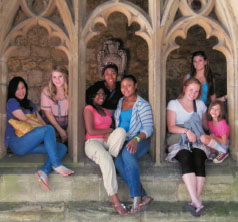
MEGHAN HARLOW
[caption id="DiaryofanOxfordSummer_img3" align="aligncenter" width="119"]
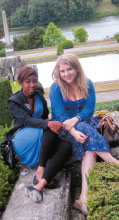
MEGHAN HARLOW
[caption id="DiaryofanOxfordSummer_img4" align="aligncenter" width="248"]
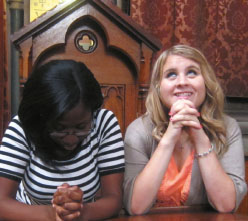
MEGHAN HARLOW
[caption id="DiaryofanOxfordSummer_img5" align="aligncenter" width="164"]
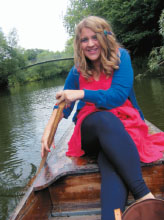
MEGHAN HARLOW
“Sucking Out the Marrow of This City” – 7
Over the past five weeks, I have seen and done a lot. I’ve read at the Bodleian Library, prayed at Christ Church Cathedral and walked through and around Port Meadow. When I sat down to plan this last week in Oxford, however, I realized that the success of my quest to suck the marrow out of this city wasn’t proportional to the miles I walked or the pounds I paid in admission fees. So I scheduled dinner dates, pub gatherings and little else, because it turns out the best memories of my time in England are not of trips to museums or views from atop Oxford’s spires. No, my most vivid and meaningful memories are of those I met along the way.
First arriving in England, I expected to see a few literary old friends: Jane Eyre and Captain Wentworth, the ladies of Cranford, maybe even Tom Jones. What I found, though, was a body of people who, yes, will shush you when you and your other American friends talk loudly in a restaurant, but who will still call you “love” when you ask to borrow their table’s salt and pepper just a few minutes later. And though the people of Oxford have given me serious cause to worry for their livers, they’ve taught me that friendship, special or otherwise, is always worth the effort of being a friend yourself. So to all the friends I’ve made and people I’ve passed in Oxford: “Cheers.” I’ll be back in New York in less than 24 hours.
“‘This is Water,’ Oxford Whispered” - 8
“There are these two young fish swimming along and they happen to meet an older fish swimming the other way, who nods at them and says, ‘Morning, boys. How’s the water?’ And the two fish swim on for a bit, and then eventually one of them looks over at the other and goes, ‘What the hell is water?’ ”
This is how writer David Foster Wallace began his speech to the 2005 graduating class of Kenyon College, and it is, now, the only way I can organize my thoughts on what were six majestic weeks in England. Because while it was certainly an experience I wanted and dreamt of and even longed for, Oxford proved to be something I needed as well. “This is water,” Oxford whispered.
Somewhere between attending lectures and making friends with the lovely and brilliant group of people who lived with me at 86 Woodstock Road, I listened. Suddenly my consciousness—theretofore shared between the 18th century I study and the future I romanticize about—became centered on the present. And daily life— banalities, rainy days and frustrations included—became appreciated for what it was and remains, another shot at it all. Because whether you’re in England or America, vacations and fancy dinners are just the punctuation of the much more interesting narrative that is the everyday. And while, on the spectrum of all the lessons Oxford taught over the centuries, it may rank insignificant, this is what I learned. I feel very, very blessed.
[caption id="DiaryofanOxfordSummer_img6" align="aligncenter" width="1024"]
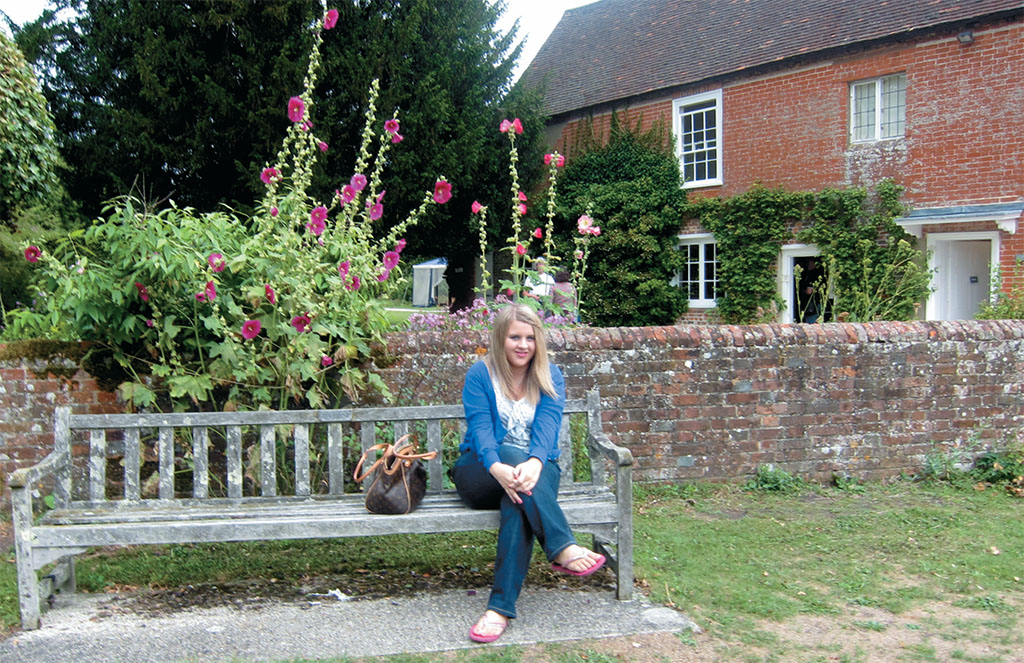
MEGHAN HARLOW









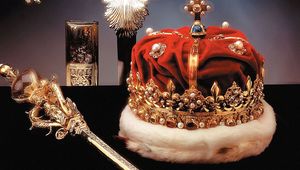
Comments